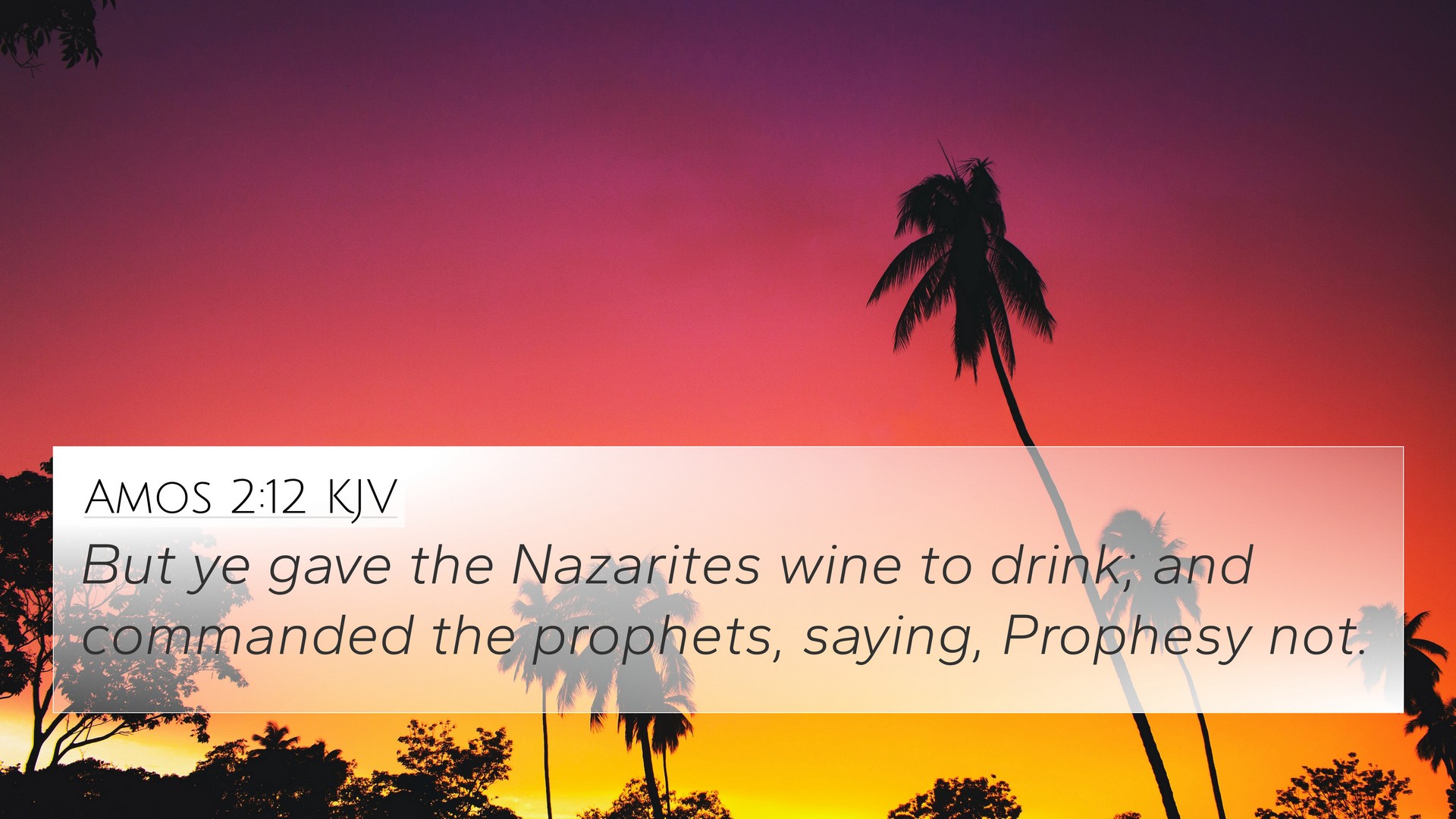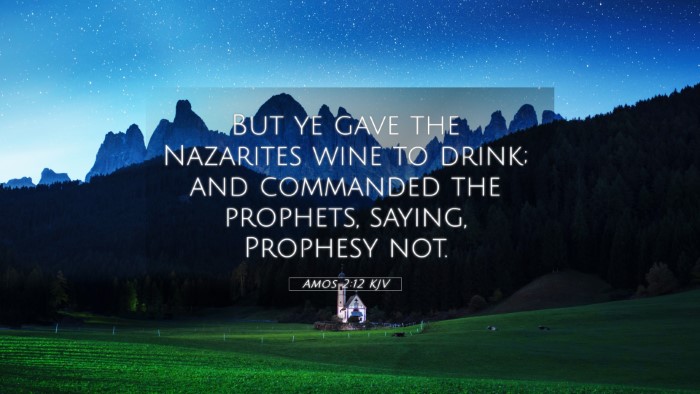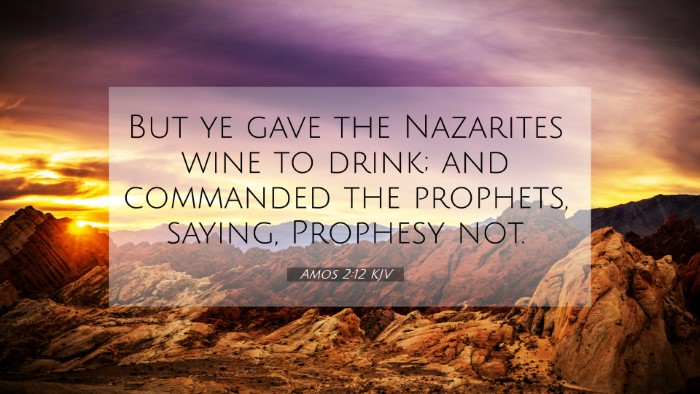Old Testament
Genesis Exodus Leviticus Numbers Deuteronomy Joshua Judges Ruth 1 Samuel 2 Samuel 1 Kings 2 Kings 1 Chronicles 2 Chronicles Ezra Nehemiah Esther Job Psalms Proverbs Ecclesiastes Song of Solomon Isaiah Jeremiah Lamentations Ezekiel Daniel Hosea Joel Amos Obadiah Jonah Micah Nahum Habakkuk Zephaniah Haggai Zechariah MalachiAmos 2:12 Similar Verses
Amos 2:12 Cross References
But ye gave the Nazarites wine to drink; and commanded the prophets, saying, Prophesy not.
Uncover the Rich Themes and Topics of This Bible Verse
Listed below are the Bible themes associated with Amos 2:12. We invite you to explore each theme to gain deeper insights into the Scriptures.
Amos 2:12 Cross Reference Verses
This section features a detailed cross-reference designed to enrich your understanding of the Scriptures. Below, you will find carefully selected verses that echo the themes and teachings related to Amos 2:12 KJV. Click on any image to explore detailed analyses of related Bible verses and uncover deeper theological insights.
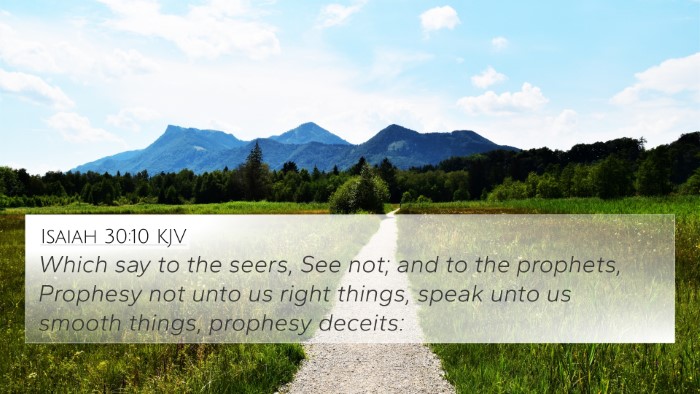
Isaiah 30:10 (KJV) »
Which say to the seers, See not; and to the prophets, Prophesy not unto us right things, speak unto us smooth things, prophesy deceits:
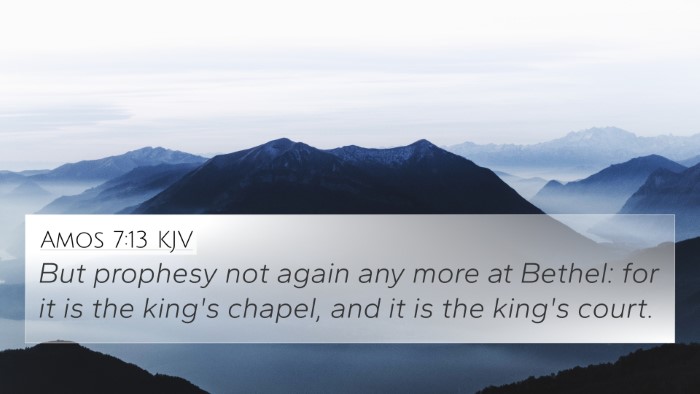
Amos 7:13 (KJV) »
But prophesy not again any more at Bethel: for it is the king's chapel, and it is the king's court.
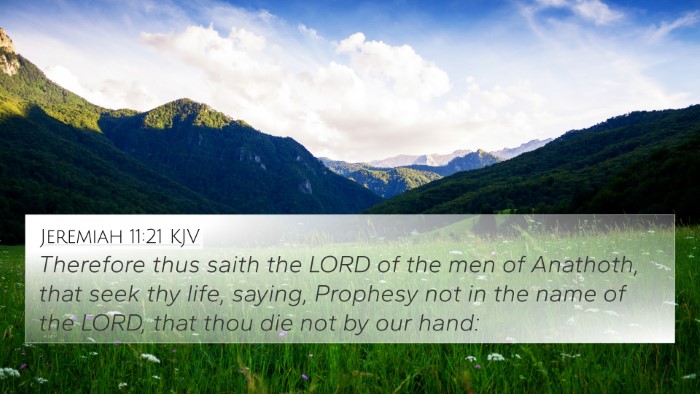
Jeremiah 11:21 (KJV) »
Therefore thus saith the LORD of the men of Anathoth, that seek thy life, saying, Prophesy not in the name of the LORD, that thou die not by our hand:
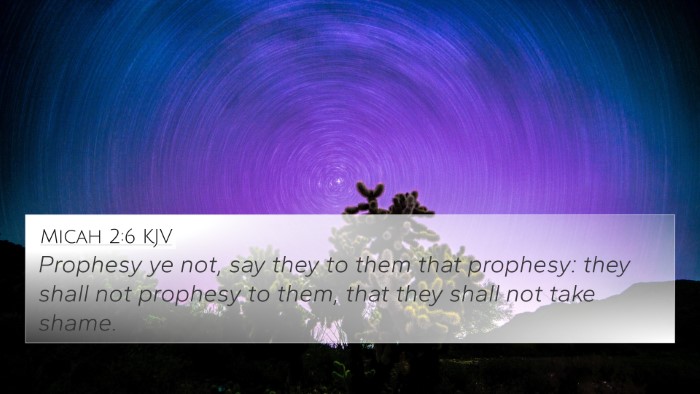
Micah 2:6 (KJV) »
Prophesy ye not, say they to them that prophesy: they shall not prophesy to them, that they shall not take shame.
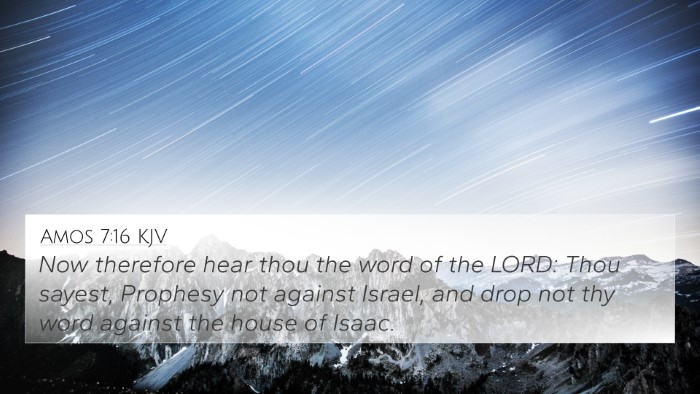
Amos 7:16 (KJV) »
Now therefore hear thou the word of the LORD: Thou sayest, Prophesy not against Israel, and drop not thy word against the house of Isaac.
Amos 2:12 Verse Analysis and Similar Verses
Understanding Amos 2:12
The verse Amos 2:12 states: "But you made the Nazarites drink wine, and commanded the prophets, saying, ‘Do not prophesy!’" This verse highlights the rebellion and corruption of Israel against God's chosen leaders and the divine call they received.
Summary of Amos 2:12
This passage signifies two primary actions undertaken by the people of Israel: the forced participation of the Nazarites in drinking wine, breaking their vow of abstinence, and the act of silencing the prophets, who were meant to deliver God's messages. The Nazarites were individuals set apart for God, and their repudiation signifies a larger rejection of divine authority.
Commentary Insights
- Matthew Henry: Henry emphasizes the significance of the Nazarite vow, which represented holiness and separation to God. He points out that compelling them to drink wine was a blatant act against their dedication to God.
- Albert Barnes: Barnes describes the sociopolitical context of Israel in Amos's time, explaining how the elite were causing moral decay by undermining religious leaders and their roles. The oppression of the prophets symbolizes the people's desire to shun divine accountability.
- Adam Clarke: Clarke notes that the command to the prophets not to prophesy indicates the extent of Israel's spiritual decline, where divine messages were treated with contempt. This backlash against God’s messengers showcases humanity's struggle against divine guidance.
Bible Cross References
Amos 2:12 can be connected with several other passages that reflect its themes of rebellion, authority, and the sanctity of divine vows:
- Numbers 6:3: Discusses the Nazarite vow and the principles behind it.
- Jeremiah 20:9: Reflects the struggle and resistance faced by God's prophets.
- 1 Samuel 16:1: Highlights God's calling of leaders, illustrating the importance of divine direction.
- Matthew 5:11-12: Jesus speaks on the persecution of prophets and the righteousness of suffering for God's sake.
- Acts 7:51: The stoning of Stephen reiterates the resistance against God's messengers throughout history.
- 1 Peter 4:14: Addresses the blessing that comes from suffering for being a Christian, linking to the heritage of prophets.
- Hebrews 11:36-38: Speaks about the suffering and persecution of those who spoke for God, connecting to the historical context of Amos's warning.
Connections and Thematic Analysis
The broader themes within Amos 2:12 offer insights into the nature of humanity's relationship with divine authority:
- Rejection of God’s Authority: The actions against the Nazarites and prophets showcase a historical pattern of rejecting God's call and guidance, evident in other biblical accounts.
- The Vow of the Nazarite: Reflects an overall theme of commitment and struggle with maintaining sanctity in a corrupt society.
- Oppression of God’s Messengers: The silencing of prophets finds parallels in other biblical narratives, illustrating a common resistance to divine instruction.
- Moral Decay in Leadership: The role of leaders in encouraging or hindering divine directive is a critical theme throughout scripture, calling believers to reflect on contemporary parallels.
Exploring Cross-Referencing Tools
To further explore these connections and themes, various tools for Bible cross-referencing can be beneficial:
- Bible Concordance: A comprehensive index of biblical words that can help find verses related to specific themes.
- Bible Cross-Reference Guide: Various editions of the Bible include cross-reference tools, allowing scholars to navigate thematic connections easily.
- Cross-Reference Bible Study: Methods involving thematic studies can bring insight into links between Old and New Testament teachings.
- Bible Reference Resources: Employ various commentaries and reference texts for deeper analysis of scripture.
Inter-Biblical Dialogue
Amos 2:12 serves as a reminder of the ongoing dialogue throughout the scriptures where the themes of divine authority, rebellion, and the role of God’s messengers continue to resonate through historical and contemporary contexts.
Conclusion
As we meditate on Amos 2:12, we are called to recognize the importance of honoring spiritual commitments and valuing the messages delivered by God’s chosen messengers. Overall, this verse reinforces the need for faithfulness to God amidst a culture that often seeks to silence the truth.
